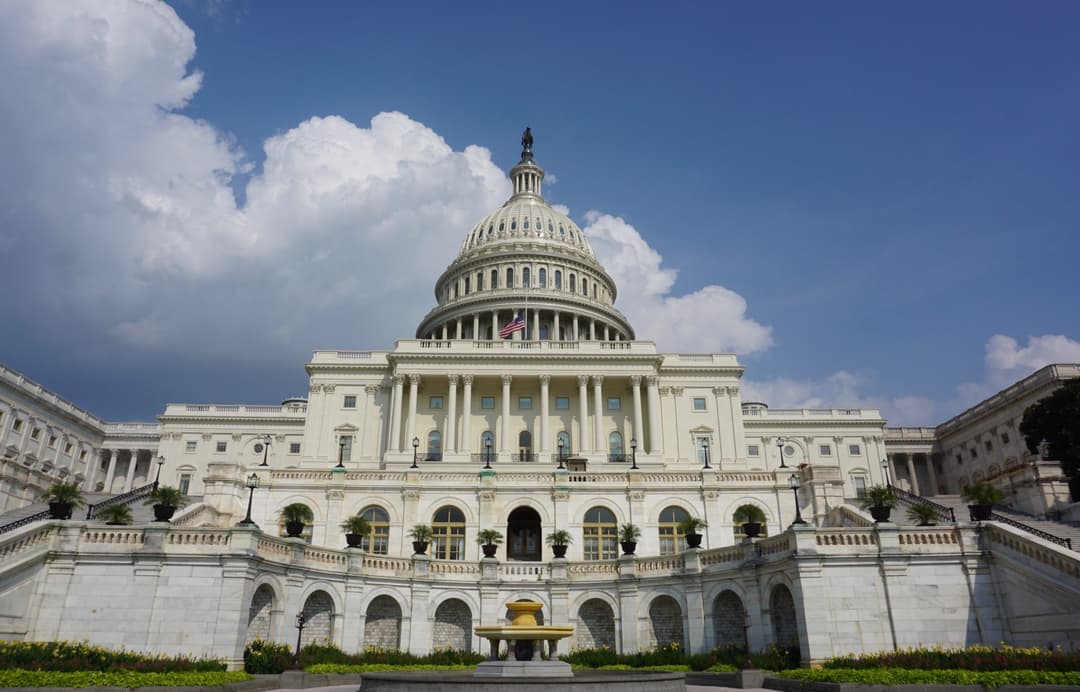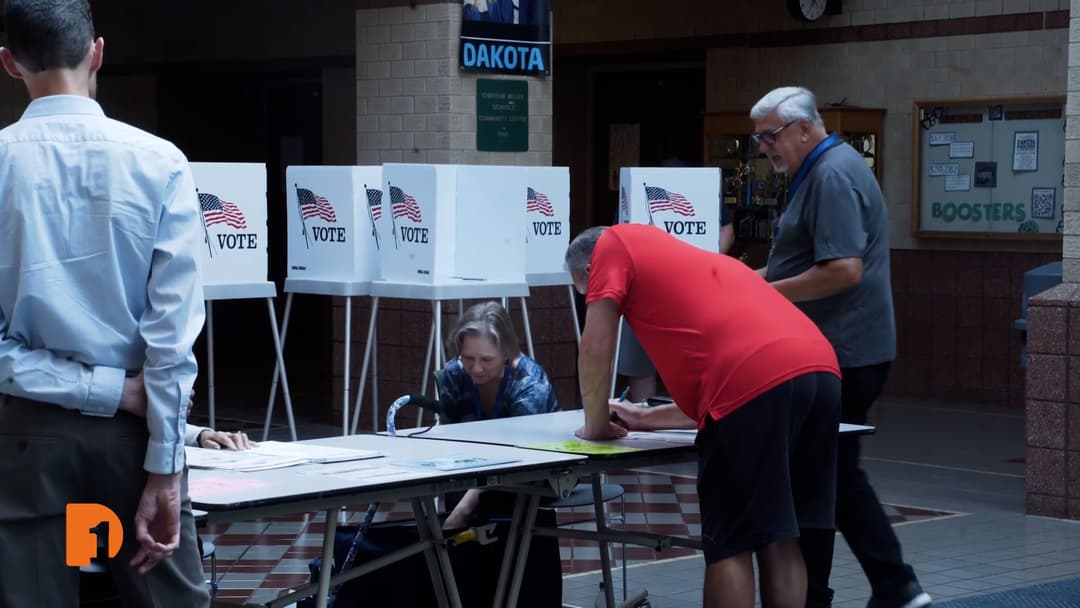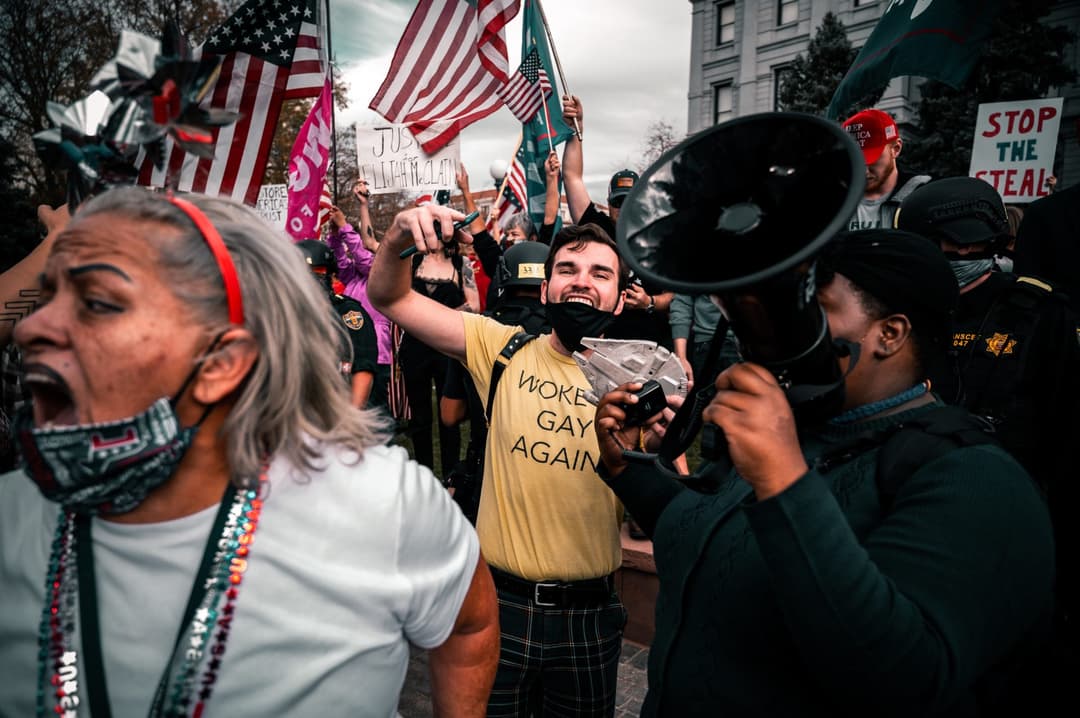Michigan’s role in an historic, unprecedented and challenging Election Day
Nov 5, 2020
Photo Courtesy: Ryan Garza, Detroit Free Press
The 2020 Election: Historic. Unprecedented. Challenging. Anxiety-producing. And Michigan is right in the middle of it. Christy along with One Detroit contributors, Stephen Henderson and Nolan Finley, talk about the election’s historic turnout, counties that flipped, and what this election says about us here in Michigan.
Read full transcript
Christy McDonald All right, let’s get right to it with our want to talk contributors, Nolan Finley, the editorial page editor of The Detroit News, and Stephen Henderson, host of American Black Journal and host of Detroit Today on WDET. Well, guys. I mean, here we are.
Stephen Henderson Yeah, well, what are what are you going to say?
Christy McDonald Well, you know, there’s still that feeling of, you know, we still have a lot of things to sort through. There still aren’t final answers. We know that Michigan ended up going for Joe Biden. But I think we start up with the things that we do know. And it’s the turnout, Nolan. Historic turnout.
Nolan Finley It was huge. Donald Trump actually got 300,000 more votes in Michigan than he did 2016 when he won the state. And, you know, this defies popular wisdom a little bit. We went into this thinking, the bigger the turnout, the bigger the margin of victory for Democrats. And it didn’t turn out that way at all. You had a big, big Republican turnout, bigger than we’ve ever seen before by far.
Christy McDonald To me, turnout, though, Stephen, is also looking at the absentee story and the way that we may be voting from now on.
Stephen Henderson Yeah, well, we made a foundational change to the franchise here in the state two years ago when we decided that we were going to open it up to absentee with no reason and early voting.
And it’s a great thing, in fact, that we’ve seen this kind of response to it in the very first election. You know, the turnout, the turnout in the cities was huge, turned out to be bigger than ever before, in fact. Bigger than 2008, which we were all blown away by how many people came out to vote for Barack Obama. That record just fell pretty quickly. So, I mean, I think that’s the good story about 2020, is that that more people than ever have decided to exercise this pretty fundamental right. And that has nothing to do with the outcome one way or another. It’s that going forward, how do you keep that enthusiasm and expand it?
Christy McDonald Yeah, how do you keep that engagement and get people even maybe more invested in the local races, the hyper local races that will really impact their everyday lives? Nolan, I think this also cemented for us the flip of Oakland County really turning and going blue.
Nolan Finley Yeah, I mean, we keep talking all these years about Macomb County and keep your eye on Macomb County. I think from here on out, you’ve got to keep your eye on Oakland County and Kent County, which also–a lot less Republican this time around than it has been in the past. Oakland County interesting, though. You look at that, that’s the place where you find these suburban women who turned against Trump. And yet, you’ve got a congressional race out there, Haley Stevens, right in the suburbs and the kind of suburbs that that Trump was supposed to be having trouble in or Republicans having trouble in it.
And she’s you know what? She was locked in a really, really tight race so that so much about this elections didn’t fit, you know, into the things we normally would predict.
Christy McDonald And, Stephen, we still look and we see that the statehouse is still a Republican majority, which is, again, interesting looking at where the votes are around the board here.
Stephen Henderson Yeah, I mean, there were some interesting changes in some seats in the House. But I always come back to the fact that, you know, our legislative districts are badly representative of the population here. I’m eager to see if this is another election in which there were more votes cast for Democratic candidates and they got fewer seats, which just happened several times here in Michigan, because we allow legislators to pick their constituents, or at least we have up until now, instead of drawing districts in a neutral way, I, I would predict that it will be much, much harder to see this kind of dominance by especially the Republican Party, because it has fewer voters than the Democrats once the map looks like it’s neutral, once the map is not drawn with party at the center of the endeavor, and that’s just in two years. The next time we vote for state House and for Senate, we’ll do it differently.
Christy McDonald Yeah, with a redistricting commission. I want to talk to both of you, though, about this feeling of how we move forward. We’re seeing challenges. And again, we have to say that we’re taping this a little bit before Thursday night. So there are still things that could be happening hour to hour. But this feeling that neither side feels like they’ve won in some way and how the mood of the country kind of goes forward from here in in working together and putting things aside, I’m feeling that it’s going to be even even harder. Nolan?
Nolan Finley Well, maybe not. I mean, I think maybe the shared disappointment is what brings us together. I mean, for somebody like me who supported neither Biden nor Trump, I take a look at a scenario in which and we don’t know this yet, but in which Joe Biden is president and the Republicans continue to hold the majority in the Senate, and I see then the inability to make big drastic changes, one party changes and I think that works toward healing the country. And I have some confidence that Joe Biden as a long time Senator and Mitch McConnell, who worked with him, will have some sort of good working relationship. I’m pretty encouraged about that. I think if we can get to the point away from the point where one party comes in, has all the party, all the power and presses, you know, their issues, and then the next party does the same and start trying to govern together and reach a middle know that’s what it’s going to take if the only way we get there.
Christy McDonald Stephen, do you share Nolan’s optimism? And I’m very it’s kind of surprising that I say that Nolan is the optimist in this here.
Stephen Henderson (laughs) I’m not sure. We have a Senate and a Senate majority leader who, you know, who declared as soon as he got control when Barack Obama was president that his goal was to make sure that the president didn’t get anything done, A, and B, didn’t get reelected. It’s going to take a really different attitude from Mitch McConnell for what Nolan’s talking about, which is what we should all want to be possible. Democrats aren’t the obstructionists in Washington right now. We haven’t had the power. What we need is for Republicans to say we’re not just going to say no, we’re not we’re not going to block all of your judicial nominees, for instance, the way they did 80 nominees for Barack Obama. You know, shared power requires that both sides value the participation more than they value the win.
Christy McDonald All right. We’re going to have to leave it there. Nolan Finley, Stephen Henderson, it’s great to see both you guys. And we’ll see you again next week.
Stay Connected
Subscribe to One Detroit’s YouTube Channel and don’t miss One Detroit on Thursdays at 7:30 p.m. and Sundays at 9 a.m. on Detroit PBS, WTVS-Channel 56.
Catch the daily conversations on our website, Facebook, Twitter @OneDetroit_PBS, and Instagram @One.Detroit
Related Posts
Leave a Reply
Your email address will not be published. Required fields are marked*





























